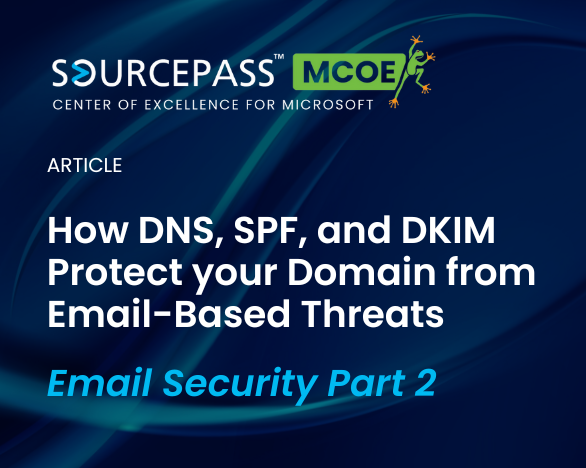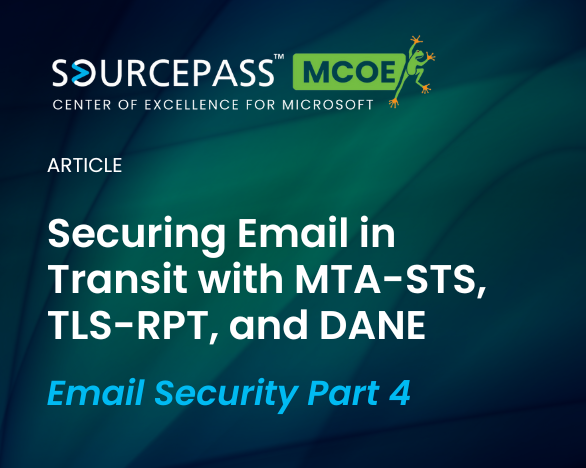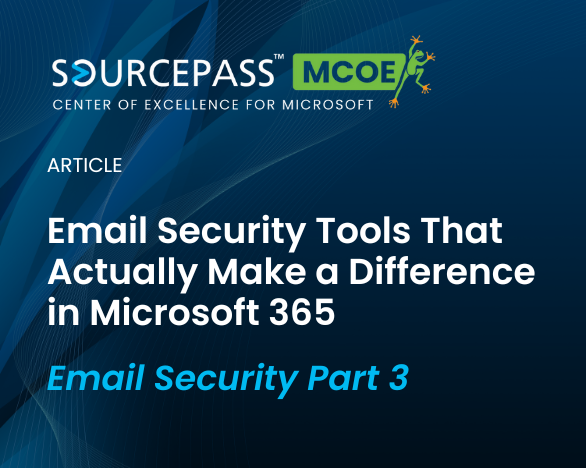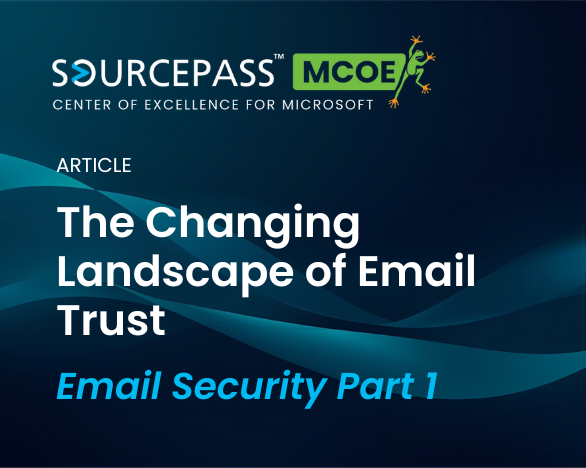8 min read
Microsoft Licensing Update: Business Premium vs Office 365 E3 Compared
Microsoft 365 Business Premium and Office 365 E3 are often compared because they now sit at nearly the same price point. Despite that similarity,...
1 min read
Keri LaRue : Updated on December 3, 2025

Email authentication standards have moved from “nice to have” to “mandatory.” Microsoft, Google, and Yahoo now require SPF, DKIM, and DMARC for bulk senders, and enforcement is tightening.
Misconfigurations no longer just hurt deliverability. They can lead to message rejection and increase exposure to domain spoofing.
In Part 2 of our podcast series, we go beyond the basics and talk through why DNS is the control plane for trust and how SPF/DKIM missteps can leave organizations exposed.
That makes DNS, SPF, and DKIM non-negotiable for IT leaders responsible for protecting brand trust and ensuring reliable communication.
Every authentication control for email lives in DNS. If your records aren’t accurate, secure, and maintained, your organization loses control over who can send in your name.
Priorities for IT leaders:
SPF defines which mail servers are authorized to send on behalf of your domain. It’s simple in principle, but many organizations break it by stacking multiple SPF records or exceeding the 10-lookup limit.
Best practices:
DKIM signs outbound email so receiving servers can verify it wasn’t altered in transit. Microsoft 365 supports DKIM natively, but most tenants leave the default setup incomplete.
Key actions:
SPF and DKIM don’t stop all phishing. But without them, your domain can be freely impersonated, and your legitimate mail may not reach the inbox. Together with DNS, they form the foundation for DMARC, which adds reporting and enforcement. That’s where visibility and control really begin.
Part 3 of this series covers how to implement DMARC for full protection.

8 min read
Microsoft 365 Business Premium and Office 365 E3 are often compared because they now sit at nearly the same price point. Despite that similarity,...

6 min read
Microsoft 365 Business Premium is entering 2026 with upgrades that change how mail, security, and AI fit into everyday operations. The plan is...

6 min read
Microsoft’s addition of GPT‑5.2 to Copilot introduces two modes that change how users interact with information and make decisions inside Microsoft...

Attackers don’t just target users anymore. They exploit the gaps in the infrastructure that moves email across the internet. Encryption in transit...

Email remains one of the most common ways attackers gain access to organizations. DNS, SPF, DKIM, and DMARC serve as identity checks that verify...

Most IT leaders already know email is the primary attack vector. You see it every day through phishing attempts, spoofed domains, and impersonated...